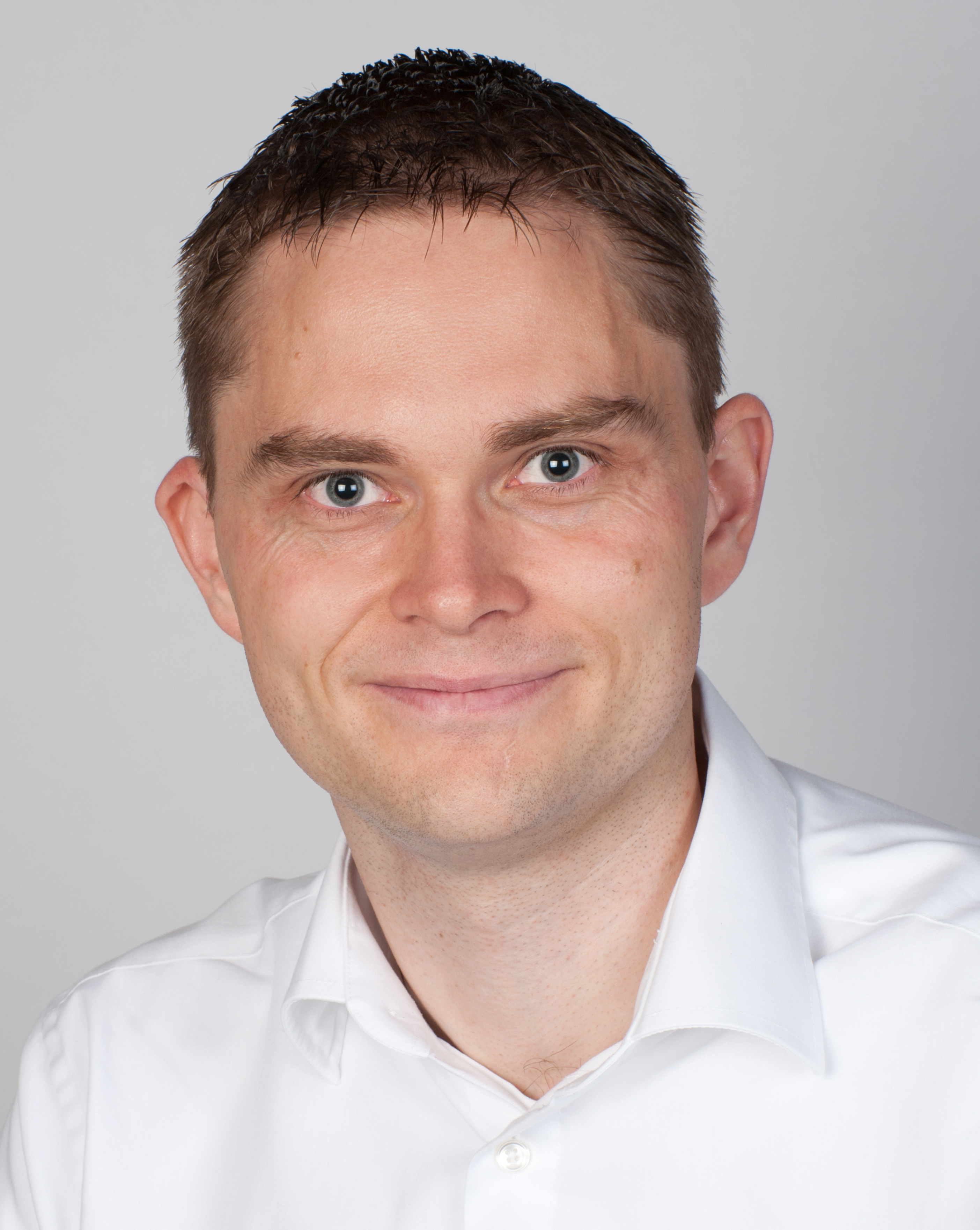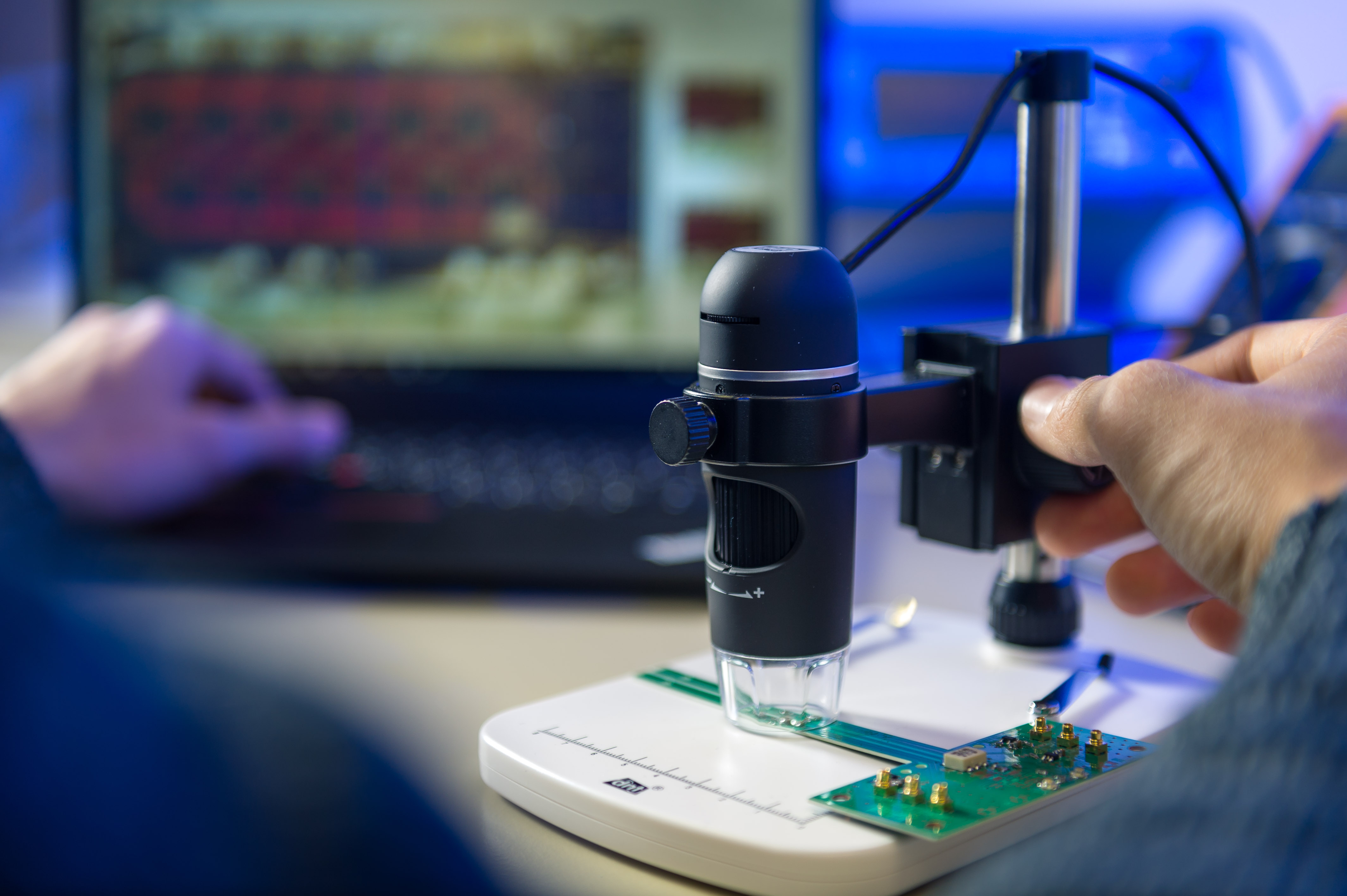QSens: BMBF future cluster brings quantum sensors of the future into medicine
The BMBF-funded future cluster ‘QSens – Quantum Sensors of the Future’ is developing ultra-sensitive sensors that could open up new options in medicine, enabling faster drug research, more accurate diagnostics and improved rehabilitation. The universities of Stuttgart and Ulm are actively working with 17 industry partners to put these cutting-edge innovations to immediate practical use.
Without sensors, modern medicine would be at a standstill. They are crucial for blood analyses, imaging techniques such as magnetic resonance imaging (MRI) and monitoring brain waves. But imagine what could become possible if medical devices were equipped with sensors vastly more precise than those that currently exist. The results could be game-changing: thought-controlled prostheses, early detection of diseases such as cancer and faster development of new drugs.
The quantum sensors being developed by the ‘Quantum Sensors of the Future (QSens)’ cluster funded by the German Federal Ministry of Education and Research (BMBF) aim to achieve all this and more. These cutting-edge sensors, made from tiny artificial diamonds with embedded nitrogen-vacancy (NV) centres, can measure magnetic fields, electric fields, movement and rotation with unprecedented precision, and are far less prone to interference than current models. In measurement technology, they have the potential to be as revolutionary as quantum computers in IT, ushering in a new generation of sensors that could fundamentally transform existing processes.
The QSens project takes state-of-the-art research into practical application

"QSens is a project involving two universities, three research institutes and 17 industry partners with a clear mission: to bring cutting-edge research to market," explains Prof. Dr. Jens Anders, director of the Institute of Smart Sensors at the University of Stuttgart and spokesperson for the QSens future cluster. "We aim to move this technology beyond the physics lab and into real-world applications." Key players include the universities of Stuttgart and Ulm, the Institute for Microelectronics Stuttgart (IMS CHIPS) and industry leaders, Bosch, Ottobock and Boehringer Ingelheim."
QSens encompasses six projects from various fields ranging from aerospace to process engineering. Two of these ventures focus on medical applications. In addition, the initiative aims to create a platform to promote synergies between the partners. Another objective is to make it easier for small and medium-sized enterprises (SMEs) to access laboratories where they can advance their own research on quantum sensors. From the second implementation phase, which begins in October 2024, QSens will be carrying out four projects focussing in greater depth on biomedical applications.
This concept also impressed the distinguished jury of the BMBF's open-topic Clusters4Future competition in 2021, where QSens was one of the seven winners selected from 137 project submissions. As a result, the future cluster secured €15 million over three years in the first round of funding. The second three-year funding phase was approved in August 2024. In 2027, the cluster may be extended for an additional three years, bringing the total funding period to nine years.
Two QSens projects in the medical field are exploring how quantum sensors can offer deeper insights into complex biological processes. QHMI is focused on developing quantum sensors capable of precisely measuring brain activity. Meanwhile, QMED is tackling medical diagnostics and investigating how quantum sensors can significantly improve the accuracy of MRI scans, blood tests and other applications.
QMED: quantum effects for better diagnoses

Quantum sensors can detect even the tiniest molecules with remarkable precision and this could have a transformative impact on medicine. The pharmaceutical industry, for instance, could leverage this technology to accelerate the search for new active ingredients or verify the quality of synthesised molecules more reliably. "I expect that one of the first areas where quantum sensors will be applied is drug research," says Jens Anders. The researcher also foresees a broad spectrum of potential uses in sample analysis, particularly within the realms of personalised medicine.
"One important approach is the measurement of free radicals, which have been linked to various diseases," explains Anders. "If we can reliably detect free radicals in the blood at an early stage, for example, this would be a major step forward in the early detection of cancer." One company involved in the QMED project, Noxygen, based in Freiburg, already offers tests to measure free radicals.
However, it's not just sample analysis that quantum sensors could potentially improve; imaging techniques such as MRI scans could also become significantly more precise thanks to this technology. The Ulm-based company NVision Imaging Technologies is set to launch a device in 2024 that uses quantum technology to enhance existing MRI systems for preclinical use. This offers a critical advantage, particularly in cancer treatment, as Jens Anders points out: "Every week matters in cancer therapy. It often takes a long time for an MRI scan to show whether a tumour is responding to treatment, and many patients don't have that time. NVision's device enables chemically resolved MRI images, allowing for faster and more accurate insights into tumour responses."
In addition to the Universities of Stuttgart and Ulm, companies including Boehringer Ingelheim, Noxygen Science Transfer & Diagnostics, NVision Imaging Technologies and Rentschler Biopharma are involved in the ‘QMED - Quantum Sensors for Biomedical Diagnostics’ project.
QHMI: using quantum sensors to create thought-controlled prostheses
'Mind reading' is already a reality in the medical field. Brain activity generates electrical and magnetic signals, which can be measured. This principle enables individuals with limited mobility to control exoskeletons through thought, helping them regain mobility. However, a significant challenge remains: brain activity is typically measured using an electroencephalograph (EEG), which either produces unreliable data or requires high risk brain surgery. Quantum sensors could be a game-changing solution, as they provide reliable data without the need for invasive procedures. Instead of measuring electrical signals, they detect the magnetic fields associated with brain activity, remaining accurate even when the sensor is simply placed on the head, which eliminates the need for implants altogether.
This breakthrough opens up entirely new possibilities, particularly in rehabilitation and the fine-tuning of prosthetic devices. For instance, as part of the QHMI project, Ottobock is developing thought-controlled prostheses based on this technology. "I believe that in six or seven years’ time, this will no longer be theoretical. We will have prostheses that can be intelligently controlled using quantum sensors," says Jens Anders.
Participants in the 'QHMI - Human Machine Interface Based on Quantum Sensors' project include the University of Stuttgart, Hahn-Schickard, the Fraunhofer Society and Charité University Medicine Berlin, alongside industry partners such as Bosch, Q.ANT and Ottobock.
The second phase starts in winter 2024: it's time for practical implementation
As the first funding phase of QSens comes to an end in autumn 2024, the second phase will shift its focus towards bringing the developed technologies closer to market readiness. Practical applications for quantum sensor-based products could open up new possibilities for many patients. However, affordability remains a key challenge, notes Jens Anders: "At present, quantum sensors are still very expensive, making them impractical for many applications." With further development, though, the cost is expected to fall, making these technologies more accessible for everyday use in medical practices - and potentially even in home settings. This reduction in cost is crucial to ensuring that high-tech quantum sensor products can improve the lives of as many patients as possible in the near future.